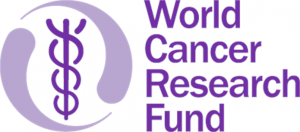Free
60mins
ROUNDTABLE: THE TRUTH ABOUT IODINE
Dr Sarah Bath, Juliette Kellow RD, Ursula Arens
ROUNDTABLE: THE TRUTH ABOUT IODINE
Dr Sarah Bath, Juliette Kellow RD, Ursula Arens
Free
60mins
CONTENT AND LEARNING OBJECTIVES
In the run up to and during Dietitians Week 2021 the British Dietetic Association (BDA) has been looking at the complex topic of iodine. They’ve highlighted the importance of addressing sub-optimal iodine intake of some at-risk groups and its consequent health implications.
The BDA’s England Board and the Maternal & Fertility Nutrition Specialist Group recently completed a project to consider the case for wider iodine fortification. This has now developed into a campaign to increase public awareness of the essential role of iodine in the diet.
A key focus of the BDA’s campaign is on plant-based drinks – giving a strong implied message that the increased consumption of plant-based drinks is the cause of poor iodine status.
This roundtable discussion webinar explores the complexity of the issue and the current options for improving the nations iodine status in at-risk groups.
ATTENDEES WILL
GAIN CLEAR UNDERSTANDING OF:
- The iodine status of the UK population and at-risk groups
- The evidence base for the size of the iodine deficiency concerns and the consequences
- Current recommendations and intakes of iodine
BE AWARE OF:
- Key food sources of iodine and practical considerations for recommendations – including dairy, plant-based alternatives, fish and seaweed
- The environmental considerations – the tension between health and environment when promoting dairy and fish
- The potential solutions for the UK population:
- Iodine fortification of plant-based alternatives and how this alone will not impact on the nation’s iodine status
- Wider iodine fortification, including the World Health Organisation’s Iodized Salt programme – how this has been adopted in many countries and proven to be successful, yet the UK is not on board
- Iodine supplementation considerations for different groups
- Key considerations for any public awareness campaign:
- The potential danger in focusing on single-nutrient communication campaigns
- Should an awareness campaign focus on holistic targeted healthy eating communications for all teenagers as those at risk of iodine deficiency are also at risk of other micronutrient deficiencies?
- Does there need to be better credible monitoring of iodine status? – Current measures via the National Diet and Nutrition Survey do not include the most vulnerable, pregnant women
BE ABLE TO:
- Identify those who may be at risk of iodine deficiency
- Suggest possible dietary approaches for ensuring adequate iodine intake
- Identify key resources for health professionals and the public for information on iodine
- Have an understanding of key considerations for:
- Any public awareness campaign
- Other national solutions to improve the nations iodine intake and status
Please note, webinars are not intended to be used by non-medically qualified individuals or as a substitute for, or basis for any medical treatment.
Help us to continue providing expert nutrition learning
If MyNutriWeb has helped you deepen your knowledge of dietary and nutritional subjects, join us to help support and educate people to eat well for themselves and the planet. Read more...
VIEW ROUNDTABLE: THE TRUTH ABOUT SOYA (1 HOUR CPD)

Expert Contributors
Dr Sarah Bath
Lecturer in Public Health Nutrition and registered dietitian, University of Surrey
Dr Sarah Bath is a Lecturer in Public Health Nutrition at the University of Surrey and a registered dietitian. She has been working on iodine since 2006, investigating iodine status and its implications in UK pregnant women and women of childbearing age. Dr Bath held a Medical Research Council Fellowship (2013-2016) which developed her work on iodine in pregnancy and also included investigation of status in school-aged children. She published work in the Lancet (2013) that showed children born to UK women with low iodine status in early pregnancy were more likely to have low IQ and reading scores at 8-9 years. Dr Bath is the author of an iodine fact sheet, published by the British Dietetic Association, which can be used by health professionals and the public for information on iodine. She is a member of the Scientific Advisory Board of the World Iodine Association, and a committee member of the UK Iodine Group.

Juliette Kellow RD
Registered Dietitian nutrition consultant for Love Seafood
Juliette is a registered dietitian and a member of the British Dietetic Association. She’s worked in the NHS and for the food industry, and is the former editor of magazines Slimming and Top Santé, and the former editorial director of Healthy Food Guide. Juliette writes for many magazines and newspapers, works with many food PR agencies and is a consultant nutritionist for several food brands.

Expert speaker
Ursula Arens
Freelance Nutrition Writer
Ursula Arens has a degree in Dietetics, and works as a freelance nutrition writer. During her career she worked in the food and pharmaceutical industries, and also at the British Nutrition Foundation. Her current interests include food fortification and supplementation, food labelling and environmental sustainability aspects of dietary guidance. Is is one of the founding authors of the British Dietetic Associations Report and Toolkit on Sustainable Diets One Blue Dot.
CHAIR
Tanya Haffner, CEO RD MyNutriWeb
CPD CERTIFICATE & LEARNING MATERIALS
CPD certificates will be sent within two weeks of viewing the full recording
This webinar is kindly run in association with World Cancer Research Fund

About World Cancer Research Fund
We are experts in cancer prevention. We champion the latest and most authoritative scientific research from around the world on cancer prevention and survival through diet, weight and physical activity, so that we can help people make informed lifestyle choices to reduce their cancer risk. Find out more here.
Please note, approval of each sponsor and activity is carefully assessed for suitability on a case by case basis. Sponsorship does not imply any endorsement of the brand by MyNutriWeb, its organisers, its moderators or any participating healthcare professional, or their association. Sponsorship funds are reinvested into the creation and promotion of professional development opportunities on MyNutriWeb.
Popular Now

Low and no calorie sweeteners: your questions answered

Yakult Science Study Day

Probiotics in the Management of Gut Disorders: What is the evidence?
Feature in a Webinar
Webinar guest experts encompass topics relevant to all professionals and change agents in food and health, across all health and business sectors.
Would you like to feature in a webinar, or propose a guest expert?
Sponsor a webinar
MyNutriWeb offers organisations and brands an opportunity to sponsor topics, gaining valuable insights into the viewpoints of professionals within a moderated environment. If there is a topic that you would like to support please get in touch to discuss.
This website is intended only for students or professionals working in food, nutrition and health. If this is you, please click to continue.



